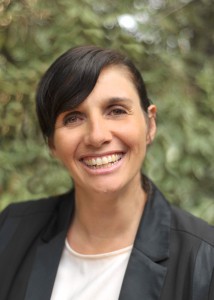 Interview with Olympia Yarger, President of the Insect Protein Association of Australia (IPAA)
Interview with Olympia Yarger, President of the Insect Protein Association of Australia (IPAA)
A brief presentation of IPAA
The IPAA aims to promote positive, practical and industry relevant regulation and governance that will benefit Insect Farmers, Insect protein suppliers, and retailers whilst upholding the clean and green brand of Australian producer.
What are your short-term goals?
Initially, our main focus was to identify the individuals and companies that have started or are planning to start insect farming in Australia. In addition we’re focused on developing an industry body that provides a framework for growers and retailers.
Our domestic and international markets for insects grown in Australia are based on our clean, green and clever product, and that ensures Brand Australia insects are leading the way in providing a nutritious protein source that is also grown in a way that reduces the environmental impacts.
Do you have any particular problem with the legal framework about edible insects for human and animal consumption?
The current framework for growing insects for human food is based upon state based regulations used for raising other animals for human food. This is sufficient for food safety, and to ensure the whole production systems is safe, clean and compliant with national food standards. As insects are not considered a novel food in Australia, unlike some European countries, we are bound by similar rules as other farmers, while needing to consider allergen profiles and warnings that apply to shellfish for consumer health advice.
When growing insects for livestock feed, the regulation currently allows the feeding of insects to livestock – aquaculture, poultry and pork. However there is no official direction regarding the processing and safe production of insects for livestock feed. For companies like Goterra the creation of their own HACCP and GMP to self regulate has been an important step in creating safe production of insects for livestock feed and ensuring the integrity of insect protein in the market.
Are the Institutions contributing enough for the development of the industry in Australia?
We’re just starting to see the effects of several insect farmers and insect protein suppliers marketing campaigns, with inquiries starting to increase. The Australian Government is actively working to develop strong, enduring regulation and guidelines to ensure the integrity of the industry. Several Universities and other Agricultural Peak bodies have indicated their support through research studies and events.
Are you planning to promote something like an information campaign?
Right now, we’re really focused on building our base and learning more about the needs of the farmers and suppliers in Australia, as well as continuing to support their efforts.
Into the new year (2018) we’ll be developing programs and information products that will assist our membership in developing conversations about the benefits of the Insect Protein industry in Australia. We’ve also aligned with AFFIA for an associate membership that we hope will lead to strong industry collaborations with international markets.
What’s the future of entomophagy (human and animal) in Australia?
We’ve a number companies working with insect for human consumption in Australia and the future is bright. What is needed now is to develop a local product that customers can trust, that tastes great and that people know how to incorporate into their everyday lives.
Insect for livestock feed companies are similarly placed with strong focus on existing farms to meet demands of consumers.
The ball is now in the court of Australian growers to make a product that people enjoy, that is easy to access and delivers a healthy and sustainable protein option.
Honesty in labelling and marketing will be important in this, so that people can easily understand where the animals were grown, what they were fed, and what the health advantages are in eating insects.





